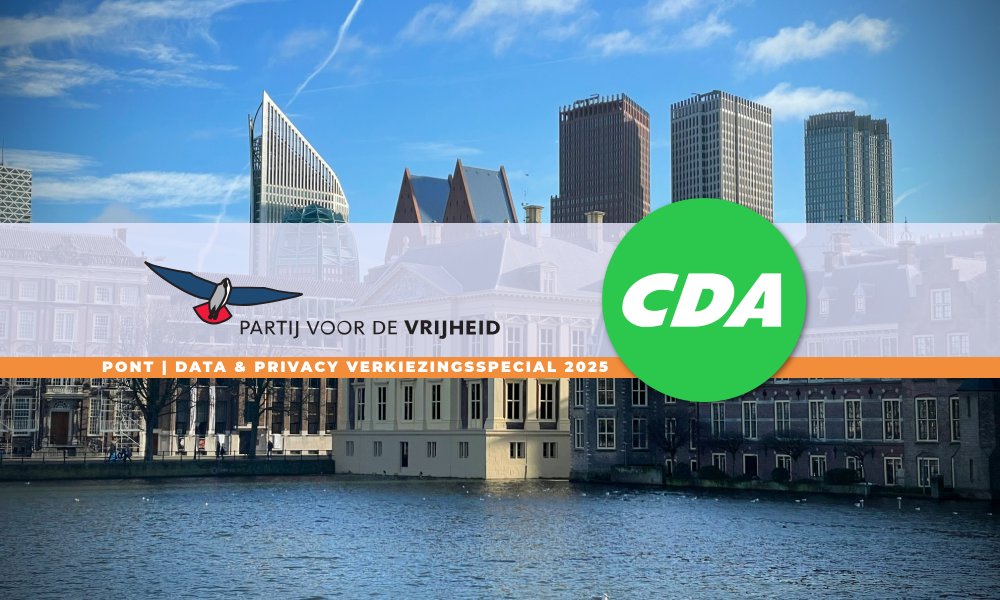Ahead of the Lower House elections on Oct. 29, in this election special we compare the positions of the eight major parties according to the polls. In each edition, we put two parties side by side. In this first edition, we scrutinize the election programs of the CDA and PVV on important digitization themes.

Disclaimer: the comparison is based solely on the election manifestos, not other statements by party leaders or group members.
The political battle for the digital future of the Netherlands shows sharp differences. While the CDA presents a broad-based agenda to regulate Big Tech, strengthen digital autonomy and invest heavily in innovation, the PVV puts the emphasis on practical applications: digital tools that primarily make everyday life more efficient and strengthen the protection of vital infrastructure.
The CDA recognizes that digitization and artificial intelligence (AI) are profoundly changing society, offering both opportunities and uncertainties. To anticipate this, the party wants to invest heavily in key technologies, including AI and quantum computing. The goal is to meet the European Lisbon objective of investing 3% of GDP in research and innovation.
The party sees room for national direction including:
- A Commissioner of AI, as the spearhead of policy and cooperation;
- additional money from the Growth Fund for critical technologies;
- promotion of the Dutch language model GPT-NL.
AI should also make the government itself more efficient, for example, in licensing, filing tax returns and reducing bureaucracy. In health care, the CDA advocates mandatory training in the operation, opportunities and risks of AI.
For the CDA, digital autonomy is inextricably linked to geopolitical stability. Becoming less dependent on American or Chinese Big Tech is high on the agenda. To that end, the party wants:
- investing in a European chip sector;
- Development of proprietary European cloud solutions;
- protection of critical infrastructure, both physical and digital, with special focus on the North Sea region where energy infrastructure is vulnerable.
The party emphasizes threats from Russia, China and Iran, and stresses that Dutch companies must also be protected from economic restrictions from outside Europe.
The PVV takes a more sober approach. The focus is on concrete benefits for citizens. The party sees AI primarily as a means of making healthcare more efficient, reducing the administrative burden and cutting red tape.
When it comes to vital infrastructure, the line is clear: ports and other strategic facilities remain in majority Dutch ownership. This aligns the PVV with its broader nationalist course, focused on independence and its own control.
The CDA in particular is pushing heavily for regulation of the digital society. The party argues that technology is never value-free and that citizens should be better protected.
Spearheads are:
- legal entrenchment of digital rights (transparency, ownership of data);
- a hotline for victims of online abuse, such as deepfakes or doxing;
- sanctions against social platforms, including temporary closure for repeated rule violations;
- a stricter approach around children online, with mandatory age verification, default privacy settings, and a European ban on loot boxes and tempting payment techniques such as "buy now pay later.
The CDA also criticizes the AVG: while important for privacy, they say the law often hinders efficient cooperation and causes unnecessary regulatory pressure. The party wants to examine how to make better use of the existing flexibility.
This article was created (in part) using AI, based on [CDA: Building on trust and PVV: This is your country!].